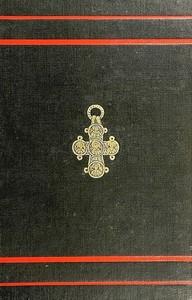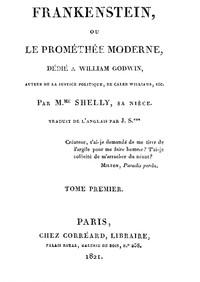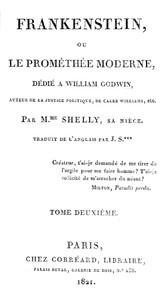Read this ebook for free! No credit card needed, absolutely nothing to pay.
Words: 30439 in 8 pages
This is an ebook sharing website. You can read the uploaded ebooks for free here. No credit cards needed, nothing to pay. If you want to own a digital copy of the ebook, or want to read offline with your favorite ebook-reader, then you can choose to buy and download the ebook.


: Sketches in Holland and Scandinavia by Hare Augustus J C Augustus John Cuthbert - Scandinavia Description and travel; Netherlands Description and travel
IN HOLLAND 1
IN DENMARK 59
IN SWEDEN 83
IN NORWAY 105
At Roosendal, about an hour's railway journey from Antwerp, the boundary between Belgium and Holland is crossed, and a branch line diverges to Breda.
Somehow, like most travellers, we could not help expecting to see some marked change on reaching a new country, and in Holland one could not repress the expectation of beginning at once to see the pictures of Teniers and Gerard Dou in real life. We were certainly disappointed at first. Open heaths were succeeded by woods of stunted firs, and then by fields with thick hedges of beech or alder, till the towers of Breda came in sight. Here a commonplace omnibus took us to the comfortable inn of Zum Kroon, and we were shown into bedrooms reached by an open wooden staircase from the courtyard, and quickly joined the table d'h?te, at which the magnates of the town were seated with napkins well tucked up under their chins, talking, with full mouths, in Dutch, of which to our unaccustomed ears the words seemed all in one string. Most excellent was the dinner--roast meat and pears, quantities of delicious vegetables cooked in different ways, piles of ripe mulberries and cake, and across the little garden, with its statues and bright flower-beds, we could see the red sails of the barges going up and down the canals.
After a delicious breakfast of coffee and thick cream, with rusks, scones, and different kinds of cheese, always an indispensable in Dutch breakfasts, we took to the railway again and crossed Zealand, which chiefly consists of four islands, Noordt Beveland, Zuid Beveland, Schouwen, and Walcheren, and is less visited by the rest of the Netherlanders than any other part of the country. The land is all cut up into vast polders, as the huge meadows are called, which are recovered from the sea and protected by embankments. Here, if human care was withdrawn for six months, the whole country would be under the sea again. A corps of engineers called 'waterstaat' are continually employed to watch the waters, and to keep in constant repair the dykes, which are formed of clay at the bottom, as that is more waterproof than anything else, and thatched with willows, which are here grown extensively for the purpose. If the sea passes a dyke, ruin is imminent, an alarm bell rings, and the whole population rush to the rescue. The moment one dyke is even menaced, the people begin to build another inside it, and then rely upon the double defence, whilst they fortify the old one. But all their care has not preserved the islands of Zealand. Three centuries ago, Schouwen was entirely submerged, and every living creature was drowned. Soon after, Noordt Beveland was submerged, and remained for several years entirely under water, only the points of the church spires being visible. Zuid Beveland had been submerged in the fourteenth century. Walcheren was submerged as late as 1808, and Tholen even in 1825. It has been aptly asserted that the sea to the inhabitants of Holland is what Vesuvius is to Torre del Greco. How well its French name of Pays-Bas suits the country! De Amicis says that the Dutch have three enemies--the sea, the lakes, and the rivers; they repel the sea, they dry the lakes, and they imprison the rivers; but with the sea it is a combat which never ceases.
The story of the famous siege of 1749 made us linger at Bergen-op-Zoom, a clean, dull little town with bright white houses surrounding an irregular market-place, and surmounted by the heavy tower of the Church of S. Gertrude. In the Stadhuis is a fine carved stone chimney-piece; but there is little worth seeing, and we were soon speeding across the rich pastures of Zuid Beveland, and passing its capital of Goes, prettily situated amongst cherry orchards, the beautiful cruciform church with a low central spire rising above the trees on its ramparts. Every now and then the train seems scarcely out of the water, which covers a vast surface of the pink-green flats, and recalls the description in Hudibras of--
A country that draws fifty feet of water, In which men live as in the hold of nature, And when the sea does in upon them break, And drown a province, does but spring a leak.
The peasant women at the stations are a perpetual amusement, for there is far more costume here than in most parts of Holland, and peculiar square handsome gold ornaments, something like closed golden books, are universally worn on each side of the face.
The crowd in the market-place was so great that it was impossible to sketch the Stadhuis as we should have wished, but the people themselves were delightfully picturesque. The women entirely conceal their hair under their white caps, but have golden corkscrews sticking out on either side the face, like weapons of defence, from which the golden slabs we have observed before were pendant. The Nieuwe Kerk is of little interest, though it contains the tomb of William of Holland, who was elected Emperor of Germany in 1250, and we wandered on through the quiet streets, till a Gothic arch in an ancient wall looked tempting. Passing through it we found ourselves in the enclosure of the old abbey, shaded by a grove of trees, and surrounded by ancient buildings, part of which are appropriated as the Hotel Abdij, where we arrived utterly famished, and found a table d'h?te at 2.30 P.M. unspeakably reviving.
Any one who sees Holland thoroughly ought also to visit Zieriksee, the capital of the island of Schouwen; but the water locomotion thither is so difficult and tedious that we preferred keeping to the railways, which took us back in the dark over the country we had already traversed, and a little more, to Dortrecht, where there is a convenient tramway to take travellers from the station into the town. Here, at the H?tel de Fries, we found comfortable bedrooms, with boarded floors and box-beds like those in Northumbrian cottages, and we had supper in the public room, separated into two parts by a da?s for strangers, whence we looked down into the humbler division, which recalled many homely scenes of Ostade and Teniers in its painted wooden ceiling, its bright, polished furniture, its cat and dog and quantity of birds and flowers, its groups of boors at round tables drinking out of tankards, and the landlady and her daughter in their gleaming gold ornaments, sitting knitting, with the waiter standing behind them amusing himself by the general conversation.
Free books android app tbrJar TBR JAR Read Free books online gutenberg
More posts by @FreeBooks

: Clorinda Walks in Heaven by Coppard A E Alfred Edgar - Short stories English; English fiction 20th century


: Alcibiade la critica e il secolo di Pericle lettera di Felice Cavallotti a Yorick figlio di Yorick by Cavallotti Felice Yorick Other - Cavallotti Felice 1842-1898. Alcibiade IT Teatro in prosa


: Frankenstein ou le Prométhée moderne Volume 1 (of 3) by Shelley Mary Wollstonecraft Saladin Jules Translator - Science fiction; Horror tales; Gothic fiction; Scientists Fiction; Monsters Fiction; Frankenstein Victor (Fictitious character) Fiction; Franke




